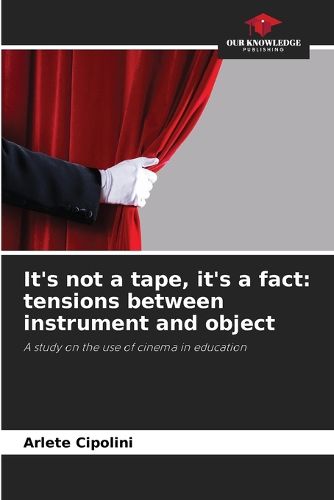Readings Newsletter
Become a Readings Member to make your shopping experience even easier.
Sign in or sign up for free!
You’re not far away from qualifying for FREE standard shipping within Australia
You’ve qualified for FREE standard shipping within Australia
The cart is loading…






The educational importance of cinema has been recognized since the beginning of the 20th century, and the invention that seemed to be nothing more than a joke with no future, became the great entertainment industry, and admittedly, the Seventh Art. This work deals with the relationship between schools and audiovisual resources, especially cinema, based on the premise that although schools are equipped, the inclusion of cinema in everyday school life does not actually take place, and there is no parallel concern to train and qualify teachers for such an undertaking. The empirical research carried out in public high schools in the city of Sao Paulo, through questionnaires and interviews with teachers, and the theoretical reflections on the historical importance of the language of cinema and its character as historically accumulated knowledge to be transmitted by the school to those who come to it, led us to the conclusion that the school still makes fragmented, inadequate and incipient use of the new languages, technologies and knowledge; thus obtaining results far below what it could achieve with the effective appropriation of these languages, technologies and knowledge.
$9.00 standard shipping within Australia
FREE standard shipping within Australia for orders over $100.00
Express & International shipping calculated at checkout
The educational importance of cinema has been recognized since the beginning of the 20th century, and the invention that seemed to be nothing more than a joke with no future, became the great entertainment industry, and admittedly, the Seventh Art. This work deals with the relationship between schools and audiovisual resources, especially cinema, based on the premise that although schools are equipped, the inclusion of cinema in everyday school life does not actually take place, and there is no parallel concern to train and qualify teachers for such an undertaking. The empirical research carried out in public high schools in the city of Sao Paulo, through questionnaires and interviews with teachers, and the theoretical reflections on the historical importance of the language of cinema and its character as historically accumulated knowledge to be transmitted by the school to those who come to it, led us to the conclusion that the school still makes fragmented, inadequate and incipient use of the new languages, technologies and knowledge; thus obtaining results far below what it could achieve with the effective appropriation of these languages, technologies and knowledge.